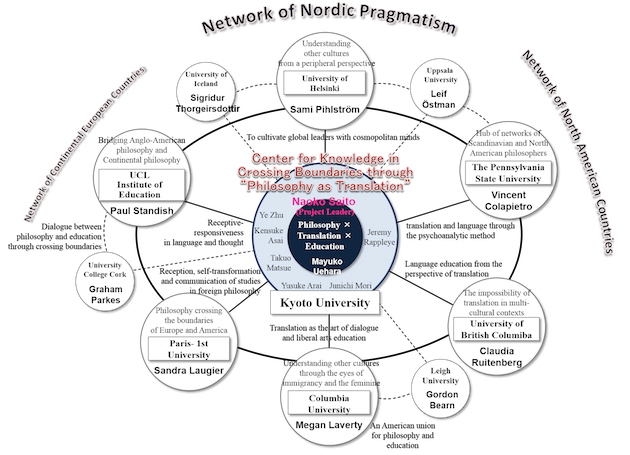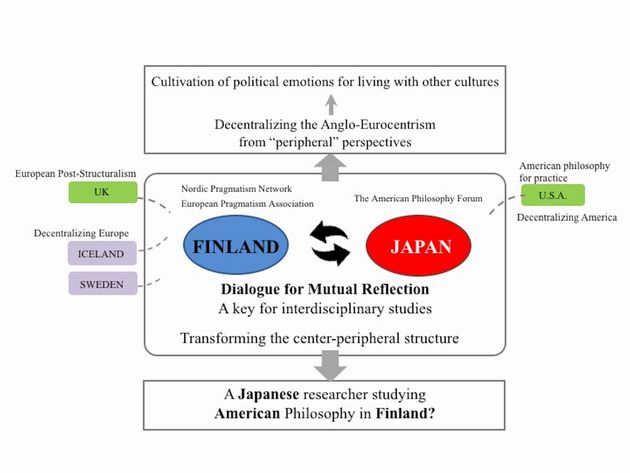Philosophy as translation and understanding other cultures: interdisciplinary research in philosophy and education for bidirectional internationalization
Project Gist
Philosophy as Translation: cultural encounters at the periphery, crossing borders within
Keywords
Philosophy as translation, understanding other cultures, bidirectional internationalization, the feminine voice in philosophy, language, incommensurability, and the exercise of judgement
Background and Purpose
The project undertakes interdisciplinary research in philosophy and education dedicated to the understanding other cultures through philosophy as translation. The project proposes a liberal arts education that will contribute to the cultivation of global leaders with a high command of foreign languages to support authentic, bidirectional internationalization. In particular it demonstrates the importance of translation interlingually and intralingually, emphasing the way that such practices develop the sense of judgement. This is of obvious importance in relation to the understanding of other cultures, and it is particularly relevant to the circumstances of students, academics, and business people who travel abroad. Such approaches to enquiry are invaluable in that they enhance the possibilities of research projects. At the policy level they raise awareness of the consequences of policy-borrowing, especially where this involves adopting the terms of another culture. In sum, the project is of crucial importance in work, at home, and in our moral lives as citizens.
Project Achievements
With the dramatic development of international dialogue in philosophy and education, the project has promoted the presence of Kyoto University on the global scene. The project has achieved a rapid increase in the number of English publications in collaboration with international team members, intensification of the international activities of young researchers, and increased international collaboration among female philosophers. The research outcomes have foregrounded questions of translation in relation to cultural difference, and it has demonstrated the importance of living well in culturally diverse circumstances. The experience of translation has been shown to be of special importance in this.
Future Prospects
1.To publish co-authored and co-edited books with foreign researchers in top-level international institutions.
2.To disseminate awareness of the ways in which experience of translation exercises and develops the powers of judgement, and to explain the moral importance of this.
3.To enhance the understanding of other cultures with a view to helping those who travel abroad – for academic or business purposes.
4.To internationalise the university
Figure




Principal Investigator

・SAITO Naoko
・Graduate School of Education
・Naoko Saito is an associate professor at the Graduate School of Education, Kyoto University. Her area of research is American philosophy and pragmatism and its implications for education. For many years, she has been working as a mediator in cross-cultural settings, especially between Japan and Anglo-American cultures, and more recently, European cultures. Her most recent publication is: Paul Standish and Naoko Saito (eds), Stanley Cavell and Philosophy as Translation: The Truth is Translated (Rowman & Littlefileds, 2017).
・http://www.educ.kyoto-u.ac.jp/nsaito/
